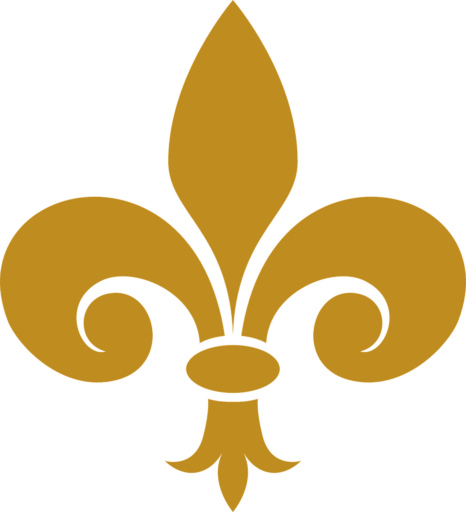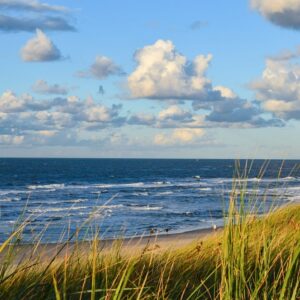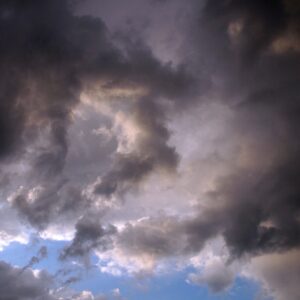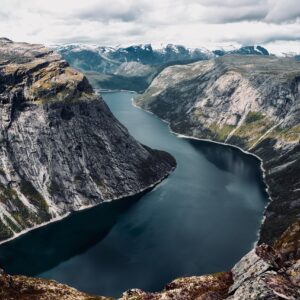You’ve just graduated from lycée. You live in Baton Rouge, so you’ve already been down to Nouvelle Orléans a few times. With intrepid friends you embark on a road trip north and east. You travel up through Les Arcansas and Saint-Louis, arc east to Chicago, then west again, passing through Fort Charles, where you enjoy some canoeing in the mazy, watery country west of Lac Supérieur, before reaching your northern terminus in Fort Rouge, otherwise known after its founder, Vérendrye. Then you make your way toward the Atlantic by way of the boreal forest, and gaze upon the ocean at Louisburg and Port-Royal. You’re tempted to venture into Massachusetts or New York, but your English isn’t good, so you return up the Saint-Laurent, past Trois-Rivieres and Montreal, cross to the southern shore of the Pays d’en haut at Niagara, go through Presqu’ile and Duquesne, down the valley of La Belle Riviere all the way to Assomption and make a quick jaunt to Mobile before home.
The world for such a journey does not exist but it could have. One of the few intellectuals who entertained this notion was the historian Francis Parkman (1823-1893). I will quote the opening paragraphs of France and England in North America, Parkman’s seven-volume epic published between 1865 and 1892. (That is the same span during which Whitman published all his editions of Leaves of Grass.) The history moves from the first French explorations and settlements in the sixteenth century to the North American theater of the Seven Years War:
The springs of American civilization, unlike those of the elder world, lie revealed in the clear light of History. In appearance they are feeble; In reality, copious and full of force. Acting at the sources of life, instruments otherwise weak become mighty for good and evil, and men, lost elsewhere in the crowd, stand forth as agents of Destiny.… On the obscure strife where men died by tens or by scores hung questions of this deep import for posterity as on those mighty contests of national adolescence where carnage is reckoned by thousands.
The subject to which the proposed the series will be devoted is… the attempt of Feudalism, Monarchy, and Rome to master a continent where, at this hour, half a million of bayonets are vindicating the ascendancy of a regulated freedom;—Feudalism still strong in life, though enveloped and overborne by newborn centralization; Monarchy in the flush of triumphant power; Rome, nerved by disaster [i.e. the Reformation], springing with renewed vitality from ashes and corruption, and ranging the earth to reconquer abroad what she had lost at home. These banded powers, pushing into the wilderness their indomitable soldiers and devoted priests, unveiled the secrets of the barbarous continent, pierced the forests, traced and mapped out the streams, planted their emblems, built their forts, and declaimed all as their own. New France was all head. Under king, noble, and Jesuit, the lank, lean body would not thrive. Even commerce wore the sword, decked itself with badges of nobility, aspired to forest seigniories and hordes of savage retainers.
Along the borders of the sea an adverse power was strengthening and widening, with slow but steadfast growth, full of blood and muscle,—a body without a head. Each had its strength, each its weakness, each its own modes of vigorous life: but the one was fruitful, the other Baron; The one instinct with hope, the other darkening with shadows of despair.
Several things strike me about Parkman. First, his capacity to perceive virtue wherever the record revealed it, and his willingness to delineate and judge that virtue (or vice, as the case may be). He was a Boston Brahmin, meaning that he was equally prejudiced against his Puritan forebears and the Catholic civilization of the Ancien Régime. But both cultures, in total or as exemplified in singular figures and episodes, he praised or condemned as seemed right.
Second, Parkman traveled to as many of the places of his story as he could. He did this first in his youth, when working on his first book, The Oregon Trail. But he continued the practice as much as possible, when he was not constrained by a neurological illness which made research and writing extremely difficult. He also went overseas multiple times for the sake of his research, in a time when this was no slight undertaking.
Third, Parkman showed wisdom in recognizing how much the struggle between France and England mattered. He realized that the early stage of his own culture, though so alien to his sensibility, was indeed its genesis. And he valued his own culture. The picture I painted at the beginning was fanciful. Nothing like the modern, (post-)industrial America we know today would have arisen had France maintained control over most of North America; for no culture, I think, has exhibited the will to dominate and exploit and finally to preserve and cherish its territory as totally as has the Anglo-Protestant culture of North America. Had France prevailed, we should likely look more like South America today.
But for me, as an author of fiction who takes inspiration from a historian like Parkman, perhaps the most salient of Parkman’s features is his prose style. Few can match his cadences and powers of description. The ability to describe a scene vividly is an underestimated and for the most part a modern virtue of the prose writer; in an age of screens it has fallen into abeyance. I’ll close with a paragraph taken almost at random from the first volume. Understand Parkman honed his descriptive acumen by moving through the real wide world of which he wrote:
Day by day brought a renewal of their toils. Hour by hour, they moved prosperously up the long windings of the solitary stream; then, in quick succession, rapid followed rapid, till the bed of the Ottawa seemed a slope of foam. Now, like a wall bristling at the top with woody islets, the falls of the Chats faced them with the sheer plunge of their sixteen cataracts. Now they glided beneath overhanging cliffs, where, seeing but unseen, the crouched wild-cat eyed them from the thicket; now through the maze of water-girded rocks, which the white cedar and the spruce clasped with serpent-like roots, or among islands where old hemlocks darkened the water with deep green shadow. Here, too, the rock-maple reared its verdant masses, the beech its glistening leaves and clean, smooth stem, and behind, stiff and sombre, rose the balsam fur. Here, in the tortuous channels, the muskrat swam and plunged, and the splashing wild duck dived beneath the alders or among the red and matted roots of thirsty water-willows. Aloft, the white pine towered above a sea of verdure; old fir trees, hoary and grim, shaggy with pendant mosses, leaned above the stream, and beneath, dead and submerged, some fallen oak thrust from the current its bare, bleached limbs, like the skeleton of a drowned giant. In the weedy cove stood the moose, neck deep in water to escape the flies, wading shoreward, with glistening sides, as the canoes drew near, shaking his broad antlers and writhing his hideous nostril, as with clumsy trot he vanished in the woods.
Jonathan Geltner lives in Ann Arbor MI with his wife and two sons. His translation of Paul Claudel’s Five Great Odes is available from Angelico Press and a novel, Absolute Music, is available from Slant. If you enjoy his posts at Close Reading, check out his new Substack, Romance and Apocalypse, for more frequent and in-depth essays on the places where literature and other arts meet religious ideas and experience.





